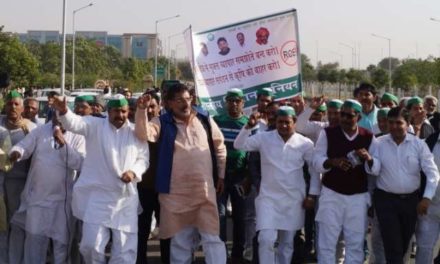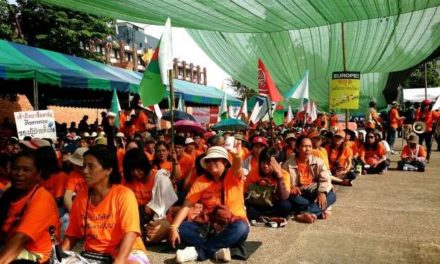Bali, Indonesia – International Financial Institutions led by the International Monetary Fund (IMF) and the World Bank Group (WBG) have long touted infrastructure development as a mark of progress. However, these projects have negatively impacted poor communities who do not reap the benefits after being told to sacrifice their villages, farms and fishing waters for the sake of development.
At the Public Forum on Infrastructure during the #WorldBeyondBanks – Gerak Lawan protest activities in Bali, different speakers raised the following issues in looking at the dynamics of mega-infrastructure projects as well as the impact on and struggles of communities affected. Main points:
- The infrastructure agenda does not serve the interests of the people and of national development;
- Infrastructure development serves the neoliberal agenda, extractivism and special economic zones (SEZs);
- Infrastructure has also been converted into an instrument for financial markets;
- Large-scale infrastructure are standardized to connect one mega-project to another;
- Mega infrastructure development has led to debt generation and poses a heavy burden to the public sector;
- Such projects impact negatively on communities and the commons, and leads to the destruction of several ecosystems and cultures;
- The push for infrastructure is led by old international financial institutions—the IMF and WB group—as well as new entities: Asian Infrastructure Investment Bank, New Development Bank (NDB), and other public sector banks;
- People who act against such projects are attacked and criminalized for their resistance;
- As infrastructure projects are supported by authoritarian governments, it provides justification on restrictions of rights and civic space;
- People need to unite their struggles and scale-up responses, as these projects are linked by global players and agreements. This reality has magnified tensions, and “de-localized” resistance against harmful mega-infrastructure projects.
The Public Forum on Infrastructure is organized by Kesatuan Nelayan Tradisional Indonesia (KNTI); Serikat Petani Indonesia (SPI); Focus on the Global South (Focus); Asia Pacific Movement on Debt and Development (APMDD); Centre for Financial Accountability (CFA); International Planning Committee on Food Sovereignty – Working Group on Land and Territory; Society for International Development (SID); European Network on Debt and Development (Eurodad); Latin American Network on Debt, Development, and Rights (Latindad); Oakland Institute; and Centre for Research on Multinational Organizations (SOMO)
[Photos by Galileo De Guzman Castillo]















